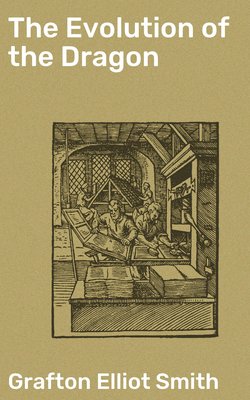Читать книгу The Evolution of the Dragon - Grafton Elliot Smith - Страница 15
На сайте Литреса книга снята с продажи.
ОглавлениеFrom the quotations which I have already given in the foregoing pages, it appears that the Chinese entertain views regarding the functions of the placenta which are identical with those of the Baganda, and a conception of the souls of man which presents unmistakable analogies with Egyptian beliefs. Yet these Chinese references do not shed any clearer light than Egyptian literature does upon the problem of the possible relationship between the ka and the placenta.
In the Iranian domain, however, right on the overland route from the Persian Gulf to China, there seems to be a ray of light. According to the late Professor Moulton, "The later Parsi books tell us that the Fravashi is a part of a good man's identity, living in heaven and reuniting with the soul at death. It is not exactly a guardian angel, for it shares in the development or deterioration of the rest of the man."[88]
In fact the Fravashi is not unlike the Egyptian ka on the one side and the Chinese shen on the other. "They are the Manes, 'the good folk'" (p. 144): they are connected with the stars in their capacity as spirits of the dead (p. 143), and they "showed their paths to the sun, the moon, the sun, and the endless lights," just as the kas guide the dead in the hereafter.
The Fravashis play a part in the annual All Soul's feast (p. 144), for which Breasted has provided an almost exact parallel in Egypt during the Middle Kingdom.[89]
